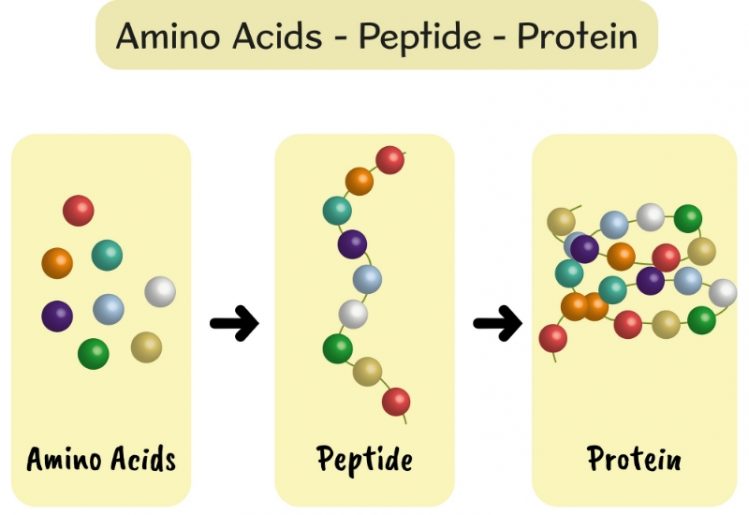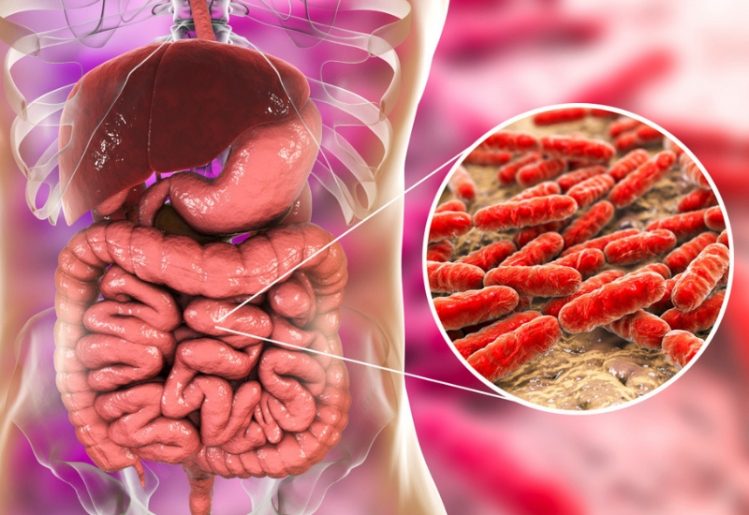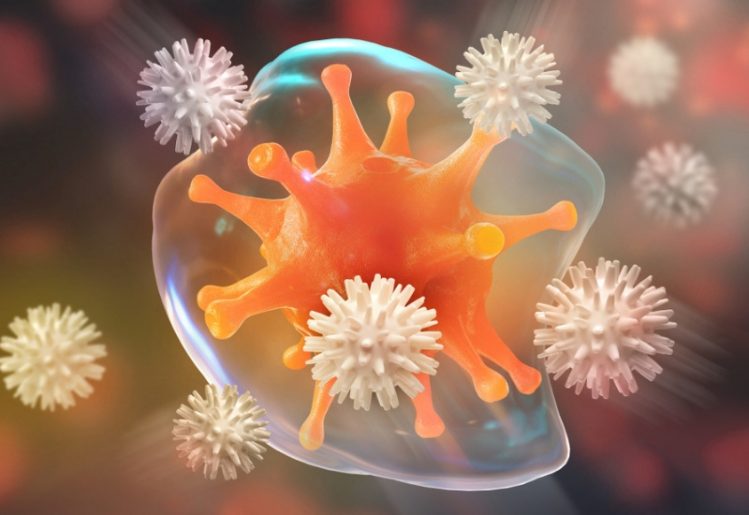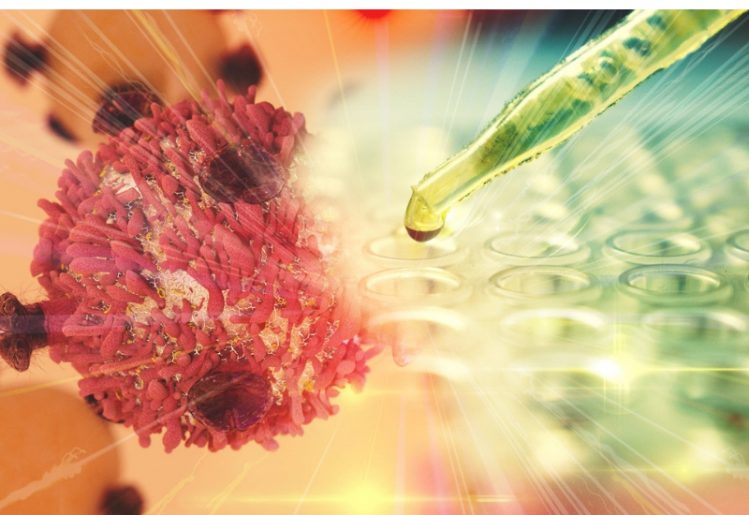What would happen if you could turn an unhealthy gut microbiome into a healthy one? According to research recently conducted at Scripps Research Institute, doing so may improve cholesterol levels and stave off chronic disease. According to this new research, gut health and disease are linked, suggesting improving gut health can positively impact the risks of developing certain diseases.
Recent Study Links Gut Health and Disease
 A recent research project used particles called peptides to identify how introducing certain molecules into the gut microbiome affected cholesterol levels in the body. Using mice that were fed high-fat diets and bred to develop arterial plaque, the team used peptides to alter the health of the gut microbiome and, in turn, improve cholesterol levels.
A recent research project used particles called peptides to identify how introducing certain molecules into the gut microbiome affected cholesterol levels in the body. Using mice that were fed high-fat diets and bred to develop arterial plaque, the team used peptides to alter the health of the gut microbiome and, in turn, improve cholesterol levels.
An unhealthy gut microbiome is one that does not contain a diverse selection of bacteria, so the goal was to encourage more diverse bacterial growth in the gut microbiome. They did this by introducing specific peptides, which would cause different strains of bacteria to thrive in the guts of the test mice. In this way, they were able to transform an unhealthy gut microbiome into a healthy one.
Before and after administering the peptides, the researchers conducted tests to evaluate the health of the mice. This involved taking fecal samples and looking at arterial health, while also examining molecules that indicate higher risks for developing inflammation, inhibited immunity and poor metabolic rates. They found that there was a 50 percent drop in plasma cholesterol in the mice receiving the peptide treatments. At the same time, researchers could not find a significant amount of plaque in the arteries of the same test mice.
While the research was conducted on mice, the researchers hope it will lead the way toward developing better treatments for human patients. Particularly, the research linking gut health and disease shows promise in treating people suffering from atherosclerosis and cardiovascular disease, though additional research is needed. Future research may take a deeper focus on how altering the gut microbiome can lower the risks of developing other diseases.
Can Strengthening the Gut Microbiome Stave Off Disease?
Another recent study found that a diverse gut microbiome can affect HDL (good) cholesterol levels, triglycerides and the likelihood of developing obesity. To look at this relationship, researchers examined the fecal samples from 893 subjects, ranging in ages from 18 to 80. The samples helped the scientists determine the richness of bacteria in the gut microbiome and the diversity of the types of bacteria. Those results were compared against the lipid levels and body mass index measurements of the subjects.
Once the comparisons were complete, they found that there were 34 types of bacteria that were positively associated with HDL cholesterol and triglyceride levels. They also find a negative correlation between the presence of those particular bacteria and BMI measurements of the subjects.
The newly discovered link between gut health and disease, which was confirmed in this study, suggests that the gut microbiome plays an important roles in several areas of health. In addition to promoting better arterial and cardiovascular health, maintaining a healthy gut microbiome can help reduce unhealthy dietary cravings and may even affect the BMI of an individual. The researchers hopes future studies will strengthen the evidence that the gut microbiome plays a vital role in human health, so those findings can be used to develop more natural treatments for certain diseases.
Natural Ways to Bolster Your Gut Microbiome
Add Prebiotics and Probiotics to Your Diet
 There are two primary ways to ensure you’re introducing sufficient quantities of probiotics and prebiotics into your gut microbiome. Many high-quality dietary supplements on the market incorporate both prebiotics and probiotics to maximize gut health. Additionally, you can eat foods that are excellent sources of prebiotics and probiotics. While there are many food sources of these important substances, a few are listed here to get you started.
There are two primary ways to ensure you’re introducing sufficient quantities of probiotics and prebiotics into your gut microbiome. Many high-quality dietary supplements on the market incorporate both prebiotics and probiotics to maximize gut health. Additionally, you can eat foods that are excellent sources of prebiotics and probiotics. While there are many food sources of these important substances, a few are listed here to get you started.
Prebiotic Foods
- artichokes
- cucumbers
- asparagus
- apples
- berries
- bananas
- honey
- dark chocolate
- seeds (flax, hemp, pumpkin, chia)
Probiotic Foods
- sauerkraut
- pickles
- kimchi
- plain yogurt
- other fermented foods
Reduce Your Sugar Intake
Maintaining a healthy gut microbiome has as much to do with what you don’t eat as it does with what you do consume. Consuming foods and drinks rich in refined sugar actually prevent the bacteria in your gut from getting the nourishment they need. As a result, some of the helpful bacteria in your gut will eventually die off, leaving you with a less diverse microbiome.
Intermittent Fasting
Fasting for brief periods can give your gut the time it needs to heal. It can also help strengthen your immune system by restoring the bacterial balance in the gut. As you fast, you should be drinking plenty of water. To add a bit of flavor, you can use lemons or apple cider vinegar. Adding bone broth to your fast can also be helpful, since the gelatin and amino acids in the broth have been shown to help the gut lining heal and grow stronger.
Get Back to Nature
Improving the diversity of your gut microbiome doesn’t just concern your diet. Getting enough exercise can help, especially if you’re doing it outside. Walking barefoot in nature or simply breathing the fresh air can expose you to a broad range of types of bacteria. Additionally, buy your produce from organic farms and give them a slight rinse to ensure you don’t wash away the bacteria. Since each living thing plays host to a different selection of bacteria, spending time among a variety of plants and animals can help you strengthen your gut microbiome.
 The process of populating the microbiome begins with the development of the fetus. As the fetus develops, the digestive tract is exposed to the microorganisms from the mother’s gut microbiome, as well as bacteria from the immediate environment. This mixture of microorganisms comes together to form a unique microbiome in the infant’s digestive tract. Even after birth, the baby’s microbiome is still developing. This is why there’s more bacteria in the digestive tract of a breast-fed baby than in the digestive tract of a formula-fed infant.
The process of populating the microbiome begins with the development of the fetus. As the fetus develops, the digestive tract is exposed to the microorganisms from the mother’s gut microbiome, as well as bacteria from the immediate environment. This mixture of microorganisms comes together to form a unique microbiome in the infant’s digestive tract. Even after birth, the baby’s microbiome is still developing. This is why there’s more bacteria in the digestive tract of a breast-fed baby than in the digestive tract of a formula-fed infant. In another study, which was conducted at the University of Chicago, researchers found that 11 strains of bacteria in the gut help
In another study, which was conducted at the University of Chicago, researchers found that 11 strains of bacteria in the gut help  The
The  We know that the immune system is responsible for attacking harmful bacteria throughout the body, and we know that the health of our bodies also depends on the helpful bacteria that comprise the gut microbiome. This knowledge has led researchers to ponder how or why the immune system can differentiate between bad bacteria and the good bacteria in the gut microbiome. Recent studies have found that the presence of vitamin A in the digestive system may be the key to solving that mystery.
We know that the immune system is responsible for attacking harmful bacteria throughout the body, and we know that the health of our bodies also depends on the helpful bacteria that comprise the gut microbiome. This knowledge has led researchers to ponder how or why the immune system can differentiate between bad bacteria and the good bacteria in the gut microbiome. Recent studies have found that the presence of vitamin A in the digestive system may be the key to solving that mystery. The Western world has spent much of the last century in a battle against bacteria. We have developed a wide variety of antibiotics to treat even the mildest infections. We even vigilantly sterilize our homes and our food under the assumption that bacteria are bad for our health. New research on the gut microbiome has turned this assumption on its head, offering solid evidence that many bacteria are good for human well-being and even essential to our health.
The Western world has spent much of the last century in a battle against bacteria. We have developed a wide variety of antibiotics to treat even the mildest infections. We even vigilantly sterilize our homes and our food under the assumption that bacteria are bad for our health. New research on the gut microbiome has turned this assumption on its head, offering solid evidence that many bacteria are good for human well-being and even essential to our health. Everyone wants good health and an immune system that functions in top form. However, this can be a challenge in the modern world. Our food and our homes are cleaner and more sanitary than ever, which is a blessing as much as a curse. We are no longer taking in the healthy range of bacteria that our bodies have evolved to need.
Everyone wants good health and an immune system that functions in top form. However, this can be a challenge in the modern world. Our food and our homes are cleaner and more sanitary than ever, which is a blessing as much as a curse. We are no longer taking in the healthy range of bacteria that our bodies have evolved to need. Green tea is recommended for a number of reasons. It’s especially helpful in promoting healthy cell growth. It also supports overall health because its antioxidant properties can protect against free radicals and oxidation in the body. It’s also a natural stimulant that supports healthy fat metabolism. Due to its diuretic actions, green tea also stimulates urine production, which means it can help alleviate bloating and excessive water retention.
Green tea is recommended for a number of reasons. It’s especially helpful in promoting healthy cell growth. It also supports overall health because its antioxidant properties can protect against free radicals and oxidation in the body. It’s also a natural stimulant that supports healthy fat metabolism. Due to its diuretic actions, green tea also stimulates urine production, which means it can help alleviate bloating and excessive water retention. If your purpose for drinking diet soft drinks is to lower your blood sugar levels, you’re only contributing to the problem. Sweeteners like aspartame promote the growth of enterobacteriaceae, harmful bacteria that boost glucose levels.
If your purpose for drinking diet soft drinks is to lower your blood sugar levels, you’re only contributing to the problem. Sweeteners like aspartame promote the growth of enterobacteriaceae, harmful bacteria that boost glucose levels. Many cancer studies are geared towards finding ways to treat this devastating condition. So far, the most popular form of treatment is chemotherapy, but it has its downside in relation to its effects on the human body. Luckily, more researchers are discovering other methods that are less harmful and could even be more effective.
Many cancer studies are geared towards finding ways to treat this devastating condition. So far, the most popular form of treatment is chemotherapy, but it has its downside in relation to its effects on the human body. Luckily, more researchers are discovering other methods that are less harmful and could even be more effective. Nanotechnology is one of the emerging fields leading the charge when it comes to cancer treatment. In cancer treatment, nanotechnology is commonly used in a treatment called nanotechnology chemotherapy. There are many forms of nanotechnology treatments when it comes to fighting cancer — but according to a new study, it seems like certain nanoparticles may in fact promote cancer growth.
Nanotechnology is one of the emerging fields leading the charge when it comes to cancer treatment. In cancer treatment, nanotechnology is commonly used in a treatment called nanotechnology chemotherapy. There are many forms of nanotechnology treatments when it comes to fighting cancer — but according to a new study, it seems like certain nanoparticles may in fact promote cancer growth.